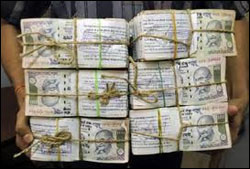Finance Minister P Chidambaram is likely to announce several tariff-related measures in the forthcoming Budget to address duty inversion problems in an effort to boost the domestic manufacturing sector as well as exports from the country.
 Duty inversion basically means that raw materials and intermediates are taxed higher than the finished products and the Budget may tackle the issue by altering customs duty rates. “Several tariff measures will be taken in this year’s Budget which will promote domestic manufacturing. Various export promotion councils have brought to our notice that there are several duty inversions. So, the government intends to now set this thing right, especially for the chemicals and engineering sectors,” a senior commerce department official told Business Standard. The move, officials said, will promote domestic production and manufacturing, which will give a fillip to Indian exports as well.
Duty inversion basically means that raw materials and intermediates are taxed higher than the finished products and the Budget may tackle the issue by altering customs duty rates. “Several tariff measures will be taken in this year’s Budget which will promote domestic manufacturing. Various export promotion councils have brought to our notice that there are several duty inversions. So, the government intends to now set this thing right, especially for the chemicals and engineering sectors,” a senior commerce department official told Business Standard. The move, officials said, will promote domestic production and manufacturing, which will give a fillip to Indian exports as well.
This will also give an impetus to the National Manufacturing Policy (NMP), which has been unveiled more than a year back but has failed to take off due to absence of investors and despite tax concessions. Under NMP, the government has proposed to set up large National Investment and Manufacturing Zones (NIMZs) with an aim to increase the share of the sector to at least 25 per cent of GDP by 2020 from the present 16 per cen, and create 100 million jobs during this period.
Under the policy, the government has authorised the National Manufacturing Competitiveness Council (NMCC) to look into duty structures and their impact on domestic manufacturing.
The official added that these measures would also augur well from a revenue realisation point of view since the finished products would be taxed more than the intermediates that go into domestic value addition.
According to a recent study done by Ficci, imported raw material users in a range of manufacturing industry segments are in a spot due to inverted Customs duty structure that makes them incompetitive against cheaper finished product imports and discourages domestic value addition.
The study noted that sectors that are adversely affected due to inverted duty structure are tyres, electronic hardware, electrical equipment, medical instruments and technical textiles among others.
For example, inverted duty structure is there in tyres.
Basic customs duty on tyres is 10 per cent as compared with 20 per cent or Rs 20/kg (whichever is lower) on natural rubber, the study said. Tackling the issue of duty inversion also assumes importance in the backdrop of several bilateral trade agreements that India is now signing with its strategic partners such as Japan, Malaysia, South Korea and the Association of Southeast Asian Nations (Asean) in the form of free-trade agreements (FTA), the comprehensive economic partnership agreements (Cepa) and the comprehensive economic cooperation agreements (Ceca).
These trade agreements provide India greater market access to the partner countries. However, higher import duties on raw materials makes Indian finished goods costlier as well as uncompetitive in the international markets.
Last year, the steering committee on manufacturing for the 12th Five-Year Plan under the Planning Commission had also recommended that local manufacturers be given a level-playing field along with cheaper imports under the trade agreements and other duty concession schemes.









